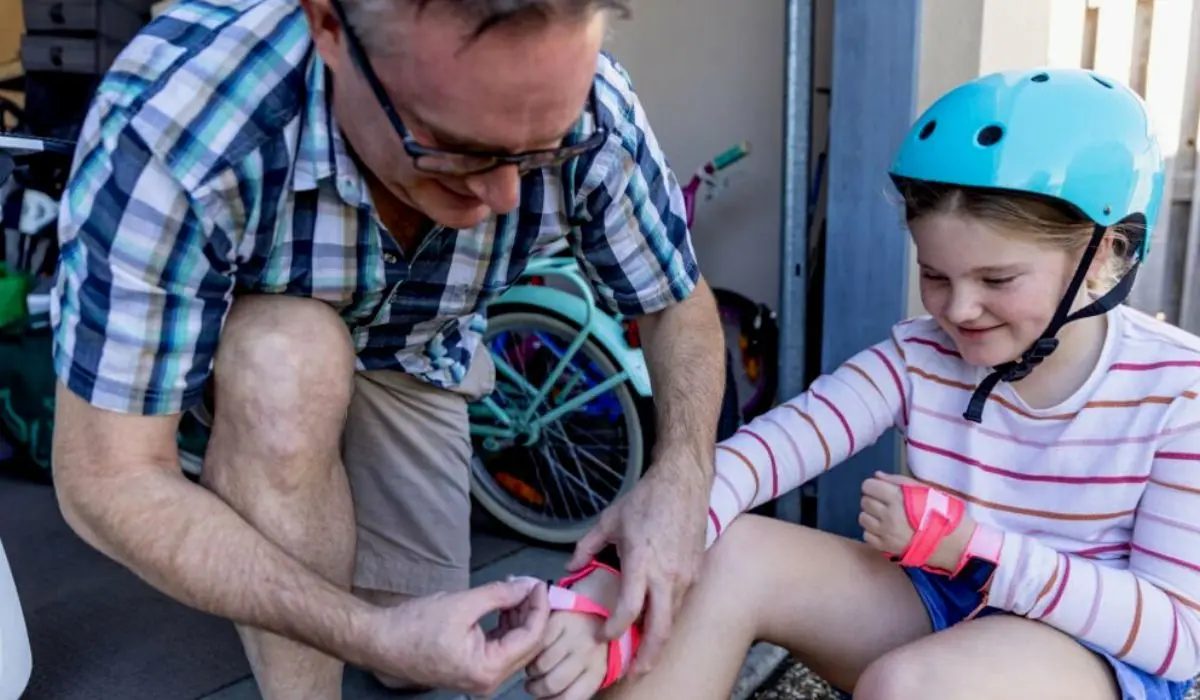Gone are the days when playing sports was just fun. On the one hand, it’s great that people are more aware than ever about the importance of physical activity and health, and organized sports help children develop several important qualities, such as team work, discipline, leadership, time management, etc.
On the other hand, sports related injuries are also on the rise. Every year in the United States, more than 2.6 million children and teenagers visit the emergency room at hospitals with a sports related injury. It is vital that parents should know how to recognize injuries in the early days before it gets bad. The following are some common ways to do that.
Common Ways To Recognize Sports Injuries – Parent’s Guide
☑️Pay Attention To Pain
If your child says it hurts at some place, don’t dismiss it. In sports or any other physical activity, pain is manifested in several ways. Most commonly, it is observed in the site of injury itself. This is easier to spot and if the pain intensifies with time, that should be taken as a red flag and visit your doctor immediately.
If the pain is felt only while doing physical activities, it can be a minor injury but you will still have to take a break from training and all physical activities that involve the site of injury. If your child reports acute pain, it can be from a sprain, bruise, or fracture. An injury can also manifest as persistent pain and may not be felt at the injury site, like golfer’s elbow, for instance.

☑️ Decline In Performance
When your child suddenly loses a winning streak or appears lazy during practice sessions, it can be the indicator of an existing injury. This could be especially true for events that involve repetitive movements, such as tennis, golf, etc.
An injury can affect the mobility of your child which can affect their speed on the track or field. If your child experiences pain, they may also become frustrated and lose interest in the sport, which could impair their performance.
☑️ Missing Correct Technique Or Form
Having an injury, like a sprain, can prevent your child from following the right technique and form. This is because the child may be unconsciously doing so to avoid discomfort at the pain area. Losing mobility of an injured joint can cause change in form.
Injuries can also reduce flexibility which can lead to compromise in the technique. It is important to address the issue immediately because following the wrong technique can cause more serious injuries that may take months or years to rehabilitate from.
☑️ Dizziness Or Passing Out
If the child feels dizzy or passes out, it can be an indicator of a head injury from a fall or some other form of impact on the head or the neck. This can cause a concussion or a severe head injury. If this is the case, immediate medical attention will be necessary to minimize the potential risks. Unequal pupil size or unusual reaction to light may indicate a more severe head injury.
☑️ Change In Breathing
If your child breathes rapidly during training or other physical activities, it can be the sign of an injury to the chest or ribs. It would be prudent to examine the chest area for any visible signs of injury and ask your child if they feel any pain in that area. In the absence of immediate medical attention, the condition can worsen and cause an infection inside the chest. In severe cases, the skin may turn blue or pale due to reduced oxygen levels in the blood.
Read More:- The Role Of Home Exercise Equipment In Recovery: Improve Your Potential
☑️ Err On The Side Of Caution
When you are not sure whether your child only has a scratch on the surface or a broken bone underneath, take the safe path. See your doctor. Fractures and internal injuries come with hidden risks. Sometimes the symptoms can be misleading. What looks like a minor issue on the outside can turn out to be more severe on the inside.
Final Thoughts
It is important to acknowledge that minor injuries are a part of training. Maintaining proper form, avoiding overtraining and getting the right nutrition can help you avoid career threatening injuries. New studies have also shown that early specialization can make children especially vulnerable to repetitive stress injuries. It is also important to accept that bad days are inevitable in everyone’s career. Always remember that nothing can put your child’s career at jeopardy like an untreated injury does.